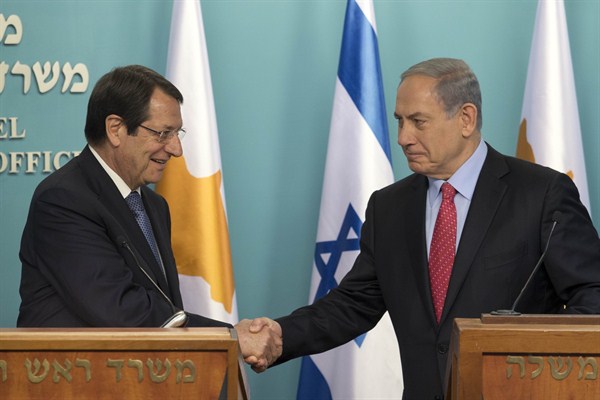In eastern Mediterranean politics, it used to be Turkey and Israel versus Greece and Cyprus. Now it’s Israel, Cyprus and Greece versus Turkey. This formulation is certainly exaggerated, but Israel and Cyprus do appear to be strengthening their ties, as represented by President Nicos Anastasiades’ visit to Jerusalem last month. The shift is reflective of changed regional conditions in both the eastern Mediterranean and Middle East at large, as well as within the countries themselves, particularly Turkey.
In the mid-1990s, Turkey and Israel drew closer because of shared regional threats and challenges from Iraq, Syria and Iran, with a particular emphasis on intelligence-sharing, joint military training and arms deals. Trade between the two flourished as well, rising from about $100 million in 1991 to over $2 billion by 2000.
At the same time, Ankara viewed Greece and Cyprus as enemies and rivals over a range of issues, including air space, fishing rights and access to the continental shelf. But at the heart of their differences was the seemingly irresolvable dispute over the future of the island of Cyprus, ethnically divided since 1974. The ethnically Greek part of the island, officially the Republic of Cyprus, has long enjoyed Athens’ protection, backing and international recognition, along with the recognition of much of the world. Ethnically Turkish and breakaway northern Cyprus is only recognized by Turkey, which still keeps more than 30,000 troops there.

